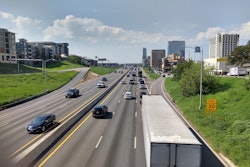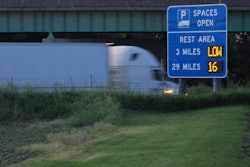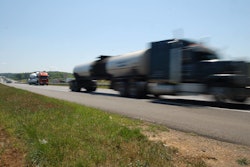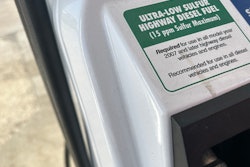Robin Hutcheson, President Joe Biden's pick to lead the Federal Motor Carrier Safety Administration (FMCSA), was confirmed by the Senate last month, becoming the agency's first administrator in the post-pandemic era. However, she's not basking in the glow of becoming the agency's first full-time boss in nearly three years.
Hutcheson, speaking at the American Trucking Associations Management Conference and Exhibition in San Diego Saturday afternoon, was named Deputy Administrator in January and immediately became Acting Administrator on the heels of then-Acting Admin Meera Joshi's resignation.
In the past 10 months, Hutcheson said her focus has been on better understanding the journey of goods from their origin, to being loaded on a truck and then on to the end consumer. As part of that quest, she said she learned to drive a manual transmission and rode along with a truck driver delivering meat products in Wisconsin.
[Related: Speed limiters, automatic emergency braking lead FMCSA's 2023 agenda]
Hutcheson will lead FMCSA through an upcoming agenda that includes a number of trucking rulemaking proposals, including speed limiters, changes to broker and freight forwarder financial responsibilities, the safe integration of automated driving systems-equipped trucks, automatic emergency braking systems, and safety fitness procedures.
Speed limiter regulation appears to have a considerable head of steam, having resurfaced earlier this year and garnering more than 14,000 comments during an open comment period that concluded this summer. Speed limiters, for the first time, cracked the American Transportation Research Institute's (ATRI) annual Top Industry Issues report, which was released barely an hour before Hutcheson addressed ATA attendees.
Safety is a word you'll hear from Hutechson frequently, and rightfully so, as her agency is charged with regulating and providing safety oversight of commercial motor vehicles. However, she foresees fulfilling that mission via a multi-pronged approach: one that includes evaluating and deploying current and emerging technologies backed by data that supports their use case.










